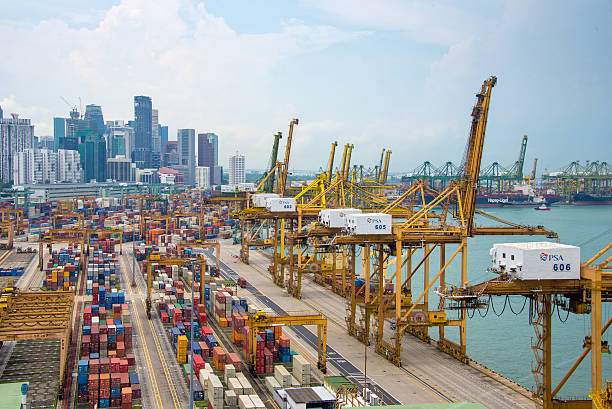A Complete Guide About STCW Training
STCW (Standards of Training, Certification and Watchkeeping) is an international convention developed by the International Maritime Organization (IMO) to set the minimum standards of education, training, certification, and watchkeeping for seafarers. The purpose of STCW is to ensure that seafarers are properly trained and qualified to perform their duties on board ships safely and efficiently.
The STCW Convention was adopted in 1978 and has been amended several times to keep up with the changing needs of the maritime industry. The most recent amendment, known as the Manila Amendments, was adopted in 2010 and became effective in January 2012.
In this blog, we will take a comprehensive look at STCW training, what it entails, and what you need to know to comply with the requirements.

What is STCW Training?
STCW training is a mandatory requirement for all seafarers who want to work on board ships. The training is designed to ensure seafarers are familiar with the latest safety practices and procedures and have the necessary skills to perform their duties safely and efficiently.
STCW training covers a range of topics, including:
- Personal Survival Techniques
- Fire Prevention and Firefighting
- Elementary First Aid
- Personal Safety and Social Responsibilities
- Security Awareness
In addition to the introductory courses, STCW also requires additional training for specific types of seafarers, such as:
- Engine Room Resource Management (ERRM) for engine room personnel
- Advanced Firefighting for deck officers
- Advanced Training for Oil Tanker Cargo Operations for oil tanker crew
- Proficiency in Survival Craft and Rescue Boats for deck officers
- Medical Care on board the Ship for the ship’s doctor and other medical personnel
Who needs to complete STCW training?
Anyone seeking to work on merchant ships, cruise liners, and offshore oil and gas platforms is required to complete STCW training. This includes:
- Deck officers
- Engine officers
- Ratings (able seamen, oilers, etc.)
- Catering staff
- Medical personnel
How to Comply with STCW Requirements?
To comply with the STCW requirements, seafarers must complete the required training and obtain the relevant certificates. The certificates are usually issued by the maritime administration of the seafarer’s country of nationality or by an organization that has been approved by the maritime administration.
The minimum training requirements for STCW certificates are outlined in the STCW Convention and the Manila Amendments. Seafarers must complete the required courses and pass the relevant exams to obtain the certificates.
In addition to the required courses, seafarers must complete periodic refresher training to maintain their certificates. The frequency of the refresher training depends on the type of certificate and the nature of the seafarer’s duties on board the ship.
Where to Get STCW Training?
STCW training is available at maritime training institutions around the world. These institutions are authorized by the naval administration of their country to provide training and issue the relevant certificates.
When choosing a maritime training institution, it is important to choose one that is accredited by the relevant authorities and has a good reputation. You should also ensure that the institution offers the courses that you need and that the instructors are experienced and qualified.
Why is STCW training important?
STCW training is important for several reasons, including:
- Ensuring maritime safety: By providing seafarers with the necessary skills and knowledge, STCW training helps to reduce the risk of maritime accidents, ensuring the safety of vessels, crew, and passengers.
- Enhancing professional development: STCW training provides seafarers with the opportunity to upgrade their skills and knowledge, which is essential for career advancement in the maritime industry.
- Meeting international standards: The STCW Convention sets minimum standards of education and training for seafarers globally, and completing STCW training is essential for anyone seeking to work on merchant ships, cruise liners, and offshore oil and gas platforms.
- Improving employment prospects: Completing STCW training can increase the employment prospects of seafarers, as many employers prefer to hire individuals who have completed the course.
Cost of STCW Training
The cost of STCW training varies depending on the institution and the type of training. The cost typically includes the training course fees, exam fees, and any other associated costs, such as accommodation and travel expenses.
Budgeting for STCW training as part of your overall career plan is important. The investment in STCW training will help you to obtain the relevant certificates and qualifications that are required for employment on board ships.
Conclusion
STCW training is an essential requirement for all seafarers who want to work on board ships. The training ensures seafarers are properly trained and qualified to perform their duties safely and efficiently.







